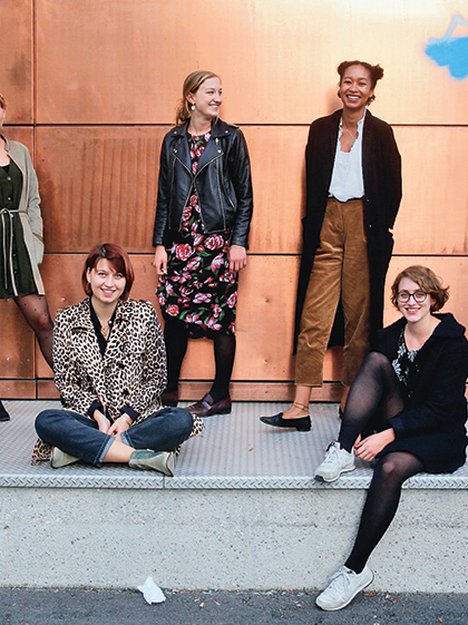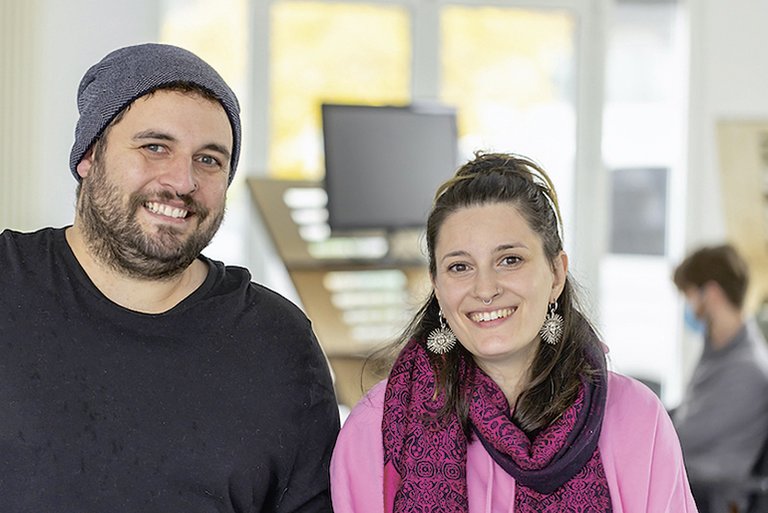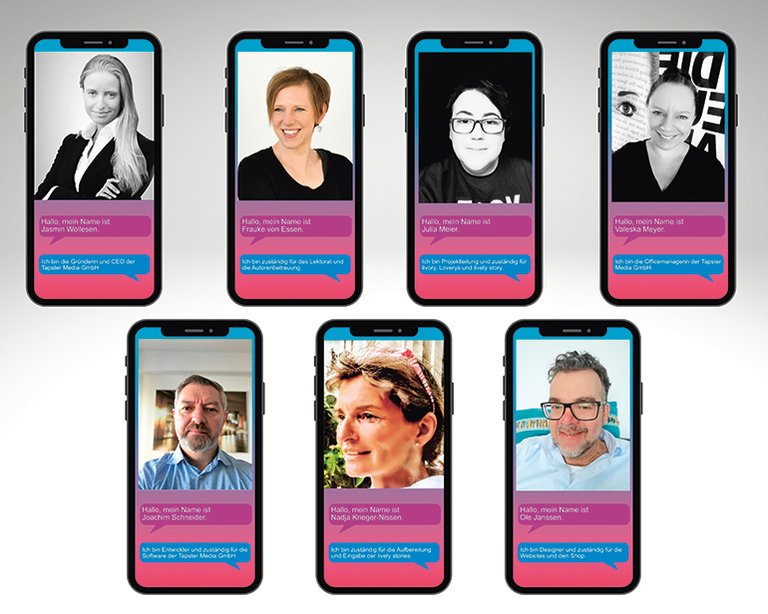Bold Ideas for Books

In our fast-moving, digitalised world, content consumption has become a multi-faceted, platform-crossing and very diverse affair. As a legacy industry, book publishing can sometimes be a slow-moving beast and the odd ‘nudge’ from the agile start-up world is very welcome. Be it turning literature into an experience or using AI to free up creative potential in publishing houses, the following three ventures infuse the industry with innovative approaches and bold ideas.
When Literature is more than words on paper
Exploring new publishing structuring, promoting sustainable book production and letting people experience literature together. That is &Töchter’s mission in a nutshell. Founded in January 2019 by five book studies students at the University of Munich, the all-female crew is the proverbial breath of fresh air. For them, literature can, and indeed should, be fun – and should be presented in ways that attract non-readers too. Not surprisingly, their kick-off project was not a book but ‘rauschen&Töchter’, curated readings held at unusual venues and transmitted via Instagram. They also produce a literature podcast called ‘plauschen& Töchter’. Their first book, ‘Great Green Thinking’, highlights their advocacy of sustainability which they themselves embody by applying the ‘cradle to cradle’ approach of a circular economy to book publishing. However, what is perhaps most innovative about &Töchter was expressed by one of the founders at last year’s Frankfurter Buchmesse opening press conference, when she spoke about not just taking a piece of the cake but baking a bigger and more colourful cake with everyone together. Clearly, this venture has truly understood that diversity and collaboration are key in the new age of book publishing.

When AI can read emotions
Who’s afraid of artificial intelligence? Let’s be honest, in book publishing, a fair few. The team at Freiburg-based Scriptbakery wants to change that. Their management and analysis software is designed to make the life of book editors easier, taking away all that is tedious about handling a never-ending stream of manuscripts and freeing up time for actually developing and producing good books. The whole process from submission to text analysis is digitalised and accessible in the cloud. Their innovation: Alinea, an AI-powered smart tool sitting at the heart of the system that can sort texts according how much proofreading is needed, for example, and can analyse the vocabulary by target group. What’s more, the software is trained to recognise the basic emotions of texts in order to filter out the dominating mood in any given manuscript, classify it accordingly and assess which ‘reading mood’ it is suitable for. Scriptbakery are very clear about their intentions: it’s not about using AI to rationalise away the need for human input but about providing assistance software to give editors more time to focus on the right books. Not only can feedback be given faster but submissions can also be passed on to other publishers who might be a better fit, instead of gathering dust on an ever-growing pile. Ultimately, this not only helps publishers but also gives authors a fairer chance.

When books become interactive
Technology is a great opportunity to provide added value – as long as it is accessible and easy to use. Cue Tapster Media, a German outfit specialising in developing new formats for the publishing industry that are based on exactly this type of easy-to-use tech. The idea: enhance stories with pictures, audio, video or special effects and make books come to life. The tool: ‘The Creator’, which does not require any programming knowledge. But the company’s platform, called ‘Lively Story’, allows publishers to do more than just enhance content for enriched storytelling; crucially, it also opens up additional income streams, since any book that is converted into a ‘Lively Story’ becomes a stand-alone app for sale and content can be consumed with a free reading app. The potential particularly for children’s and YA fiction but also other genres is considerable and, as illustrated by a collaboration announced last December with the retailer and publisher Weltbild, the industry is taking note.
